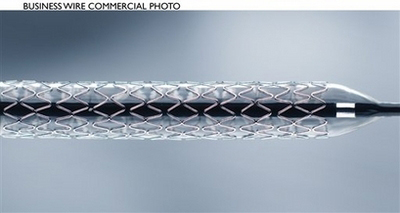The US Food and Drug Administration on Friday approved the sale of Medtronic drug-coated stents, the first to hit the US market since safety concerns scuttled their popularity two years ago.
The FDA said it cleared the company's Endeavor stent for use in patients with clogged arteries. Medtronic said it expects to ship 100,000 units to hospitals in February.
Endeavor is one of a new generation of stents the industry hopes can rejuvenate US demand for the drug-oozing devices, sales of which plummeted to 2 billion US dollars last year, down from a peak of 3.1 billion dollars in 2005.
Stents are tiny, mesh-wire tubes that prop open arteries after they have been surgically cleared of fatty plaque. They became one of the most lucrative medical devices in modern history after companies began adding drug coatings to stents in 2003 to prevent blood clotting. An estimated 6 million people worldwide have had one implanted.
A series of studies in 2006 showed that months after they're implanted, stent coatings have the potential to increase the risk of life-threatening blood clots unless patients continue to take anti-clotting drugs. Medical societies, such as the American College of Cardiology, urge patients to continue taking the drugs for at least a year after implantation.
In late 2006, a panel of federal advisers said that the majority of patients with the drug-coated stents have an increased risk of heart attack and death, though it's unclear whether their poor health or the drug coatings are to blame.
The percentage of stent patients receiving drug-coated versions versus the older, bare-metal models has fallen to an estimate 65 percent, from more than 80 percent, before 2006.
And there's been more bad news for companies that sell stents as recently as last week. A study in the New England Journal of Medicine showed patients who underwent bypass surgery had fewer heart attacks than those who had stents implanted. The study dimmed hopes that less intrusive stenting would prove just as safe as surgery for people with clogged arteries.
(Agencies via Xinhua News Agency February 4, 2008)


